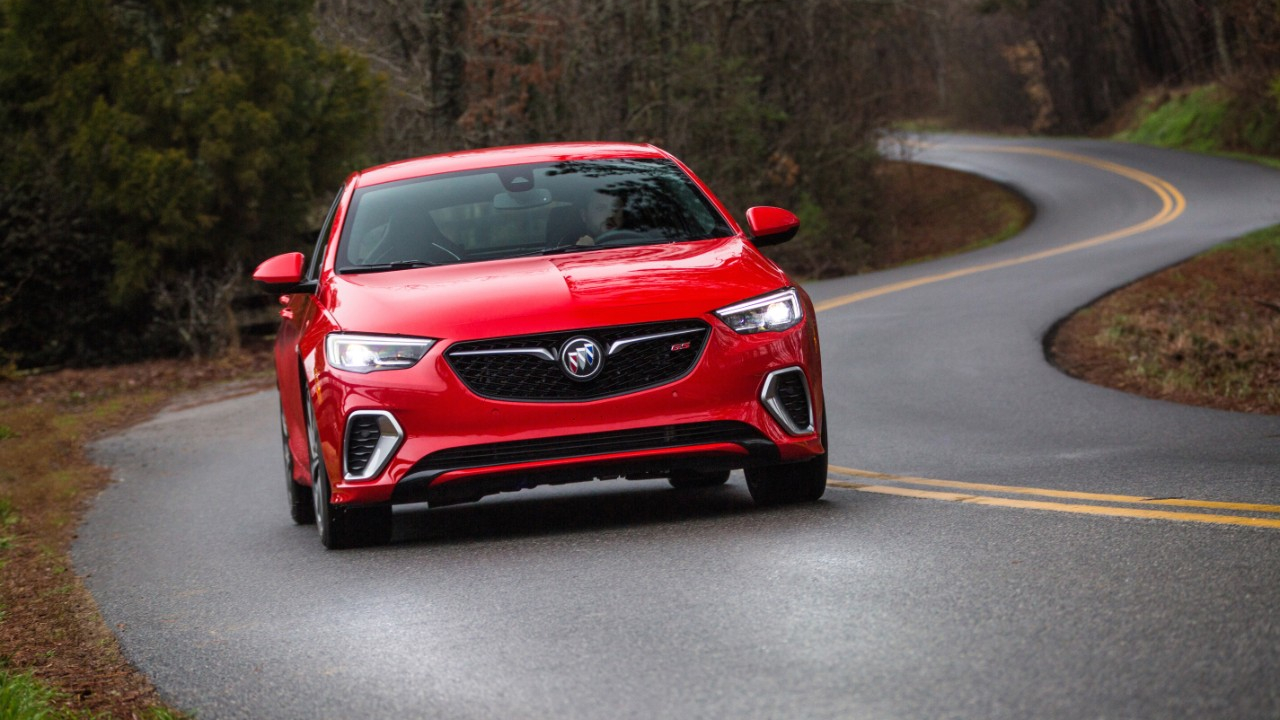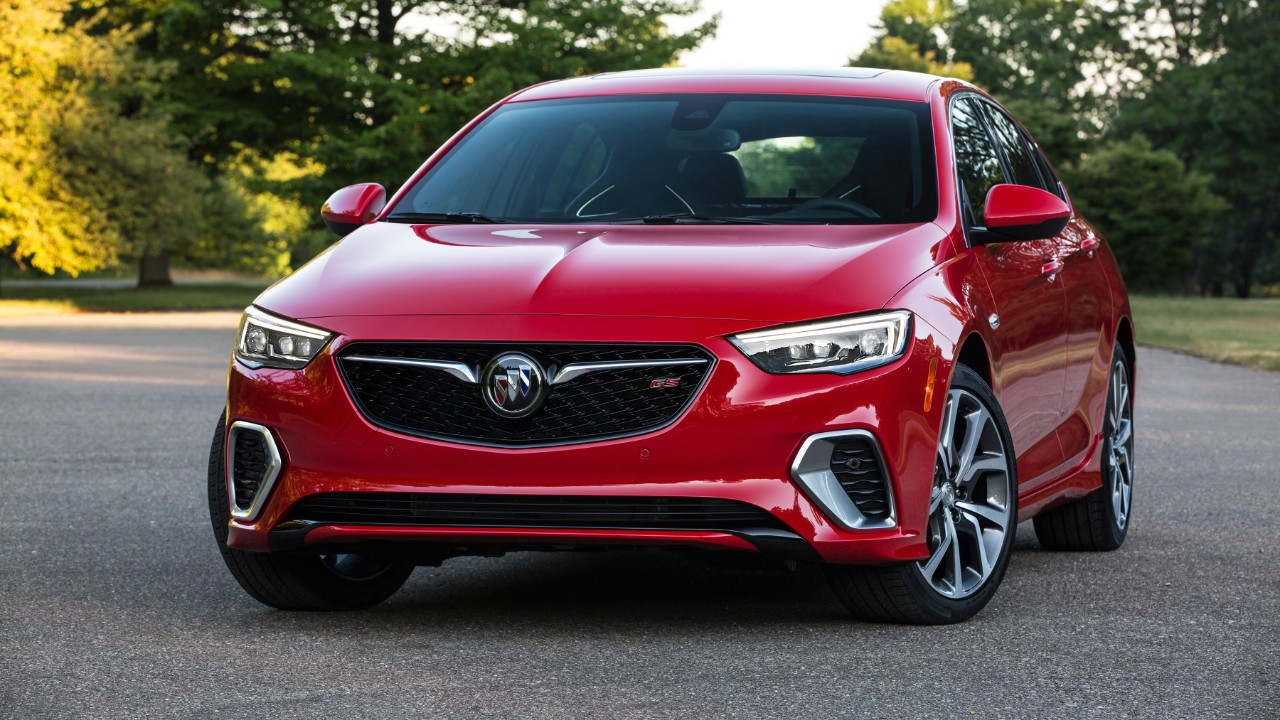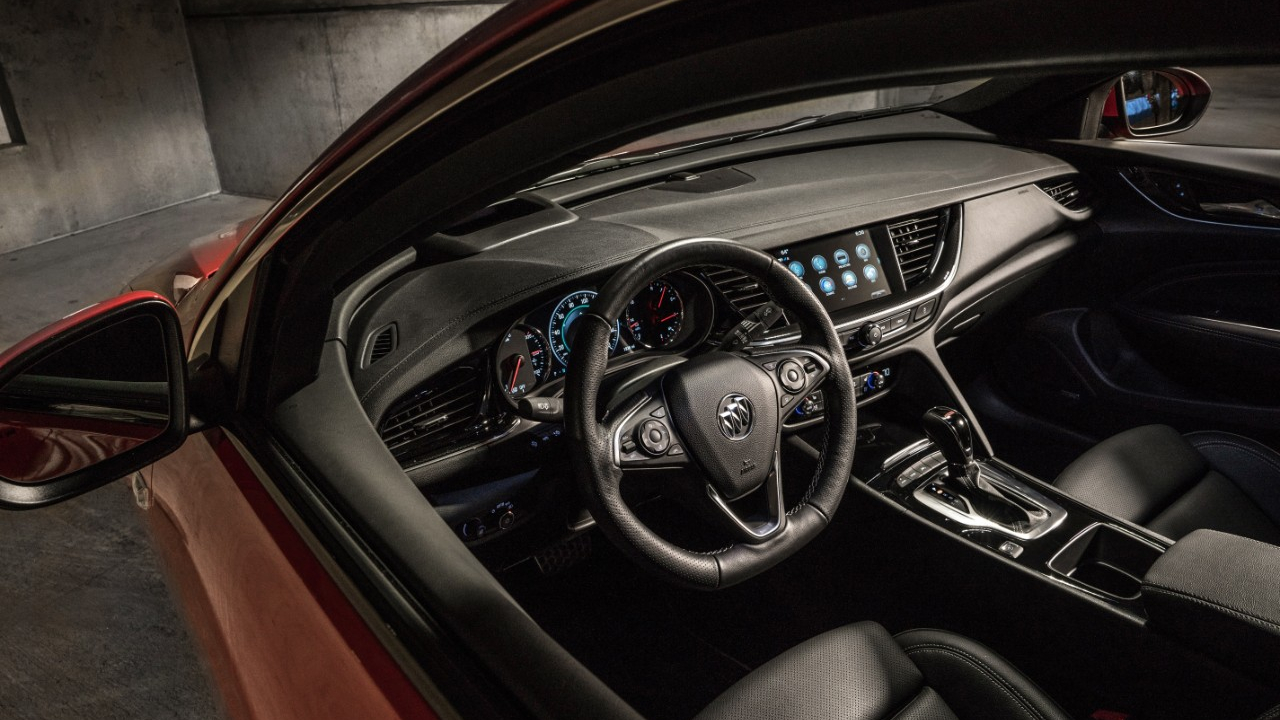The Buick Regal GS protects pedestrians with a hood that works like an airbag
Pyrotechnics lift hood in a fraction of a second

Sign up for breaking news, reviews, opinion, top tech deals, and more.
You are now subscribed
Your newsletter sign-up was successful
One of the most overlooked accidents on the roadway involves pedestrians walking in front of cars. These incidents, which occur mostly at intersections and in parking lots, don’t get a lot of attention compared to major accidents on highways. Yet, experts say there’s been an increase in how often pedestrian impacts occur.
In the 2018 Buick Regal GS, there’s a new technology that might help reduce the severity of the injuries. Known as the Active Hood Pedestrian Safety System, the technology deploys the hood of the car up above the engine, lessening the impact against the engine components.
“There’s a lot of work that goes on to avoid unnecessary deployments, and it has a very complex algorithm that differentiates different sizes of dummies,” says Wahaj Hussain, the Active Hood lead at Buick.
Sensing humans
First, he says there’s a diagnostic module in the bumper that senses impact. Within milliseconds, the sensor can detect when the impact was likely a human or perhaps just a lamp post at the mall. There are pyrotechnics on the hinges of the Regal GS that cause the hood to lift up, which creates a cushion for a pedestrian that works roughly like an airbag in softening impact.
Hussain says this reduces the risk of serious injury for pedestrians. From the research they’ve conducted at Buick with crash test dummies and in computer modeling, there’s a split second window when a person makes impact, often at the leg, and when the head and upper torso make impact with the hood, so lifting up the hood has to occur quickly.

The sensor in the front bumper involves a pressure sensitive tube. Using an algorithm, the car can quickly sense the degree of impact. When the tube collapses, the sensor can tell the difference between a trash can or other item that hits the front.
“15% of all fatalities in the US are a results of a pedestrian impact,” says Hussain, who explains that there's an impact every 7.5 minutes and 5,000 fatalities every year.
Sign up for breaking news, reviews, opinion, top tech deals, and more.
Cushioning impact
The pyrotechnics in the hinges actually break off the hinges as well, and create a cushion that prevents the pedestrian from making contact with engine components such as the shock tower.
“It’s the secondary impact that causes the most injury, not the contact with the hood,” says Hussain, explaining that there are at least four extra inches of space above the engine.

“There’s an internal complex strategy to make sure we meet the requirements [for reducing injury] and that Active Hood performs as it is intended,” he says. “We have developed checks and balances – computer-aided engineering, impact analysis, crash test dummies, lightforms and head forms, material sensing, and tons of hardware testing.”
The computer models test out different pedestrian sizes to see how the Active Hood, and one of the things they learned through the modeling is how far to raise the hood. Hussain says fatalities have been increasing every year by about 10%, and that the biggest increases in accidents occur in suburban areas, not in busy downtown districts.
On The Road is TechRadar's regular look at the futuristic tech in today's hottest cars. John Brandon, a journalist who's been writing about cars for 12 years, puts a new car and its cutting-edge tech through the paces every week. One goal: To find out which new technologies will lead us to fully driverless cars.

John Brandon has covered gadgets and cars for the past 12 years having published over 12,000 articles and tested nearly 8,000 products. He's nothing if not prolific. Before starting his writing career, he led an Information Design practice at a large consumer electronics retailer in the US. His hobbies include deep sea exploration, complaining about the weather, and engineering a vast multiverse conspiracy.